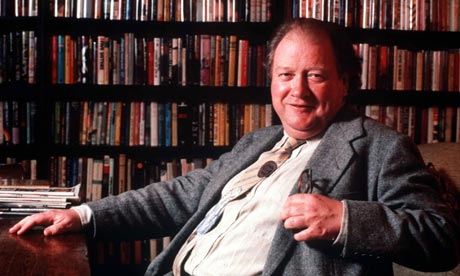
The BBC and several dozen Twitter users face the prospect of legal action after Lord McAlpine indicated that he could sue for libel over what he described as "wholly false and seriously defamatory" reports linking him to north Wales child abuse allegations.
The Conservative peer issued a statement on Friday after days of frenzied speculation in the wake of a BBC Newsnight report last Friday.
McAlpine has reportedly instructed Sir Edward Garnier QC, the Conservative MP and former solicitor general, to act on his behalf in any potential libel claim.
Newsnight did not name McAlpine in the programme but the peer was linked by internet rumours to the allegations.
Now media lawyers have said the BBC could be successfully sued for libel if McAlpine can prove that Newsnight aired enough material for some viewers to "reasonably infer" that he was the unnamed politician.
Steve Kuncewicz, a lawyer specialising in media and social networks, said: "If the BBC has said something that doesn't name him directly, but allows people to put two and two together, then there would be a risk in that. We're talking about one of the most serious libels you can make, he's been falsely accused of a very, very serious criminal offence."
However, the media law expert David Banks, co-author of McNae's Essential Law for Journalists, said he did not believe the BBC had broadcast enough for viewers to identify McAlpine.
Newsnight described the subject of the allegations only as a leading Conservative figure during the Thatcher era, which Banks believes is sufficiently vague for the BBC to have a strong defence if McAlpine attempts to sue.
"I don't think the BBC have really done enough to identify McAlpine, and the action I think would fail because of that," Banks said.
But internet users who explicitly linked McAlpine to the abuse allegations online would not be protected by the BBC's defence.
Niri Shan, head of media law at London solicitors' firm Taylor Wessing, warned that "ignorance is no defence" for Twitter users and that they could easily find themselves in the high court if McAlpine chooses to take action.
"If you publish to a third party that someone is a paedophile or a suspected paedophile then you are liable to a defamation claim," he said. "They're just as responsible as a newspaper or broadcasters, and just as liable."
Individual Twitter users could even face legal action if McAlpine sues the BBC, because the corporation could argue that it is being sued as a result of what other people have published.
In 2006, Ashley Cole successfully sued the now-closed News of the World for libel over an article about an unnamed footballer the tabloid linked with a "gay sex romp".
The News of the World story included a pixellated photograph which it claimed was of a Premier League footballer with a music industry figure. PinkNews.co.uk then republished the picture with the suggestion that the footballer in it was Cole. The News of the World in turn threatened to sue PinkNews.co.uk for their losses from the Cole action.
Kuncewicz said if McAlpine brought a libel claim against a Twitter user it would be a landmark case that could set a significant legal precedent governing internet messaging.
He added: "People need to realise that what you say offline will get you into the same trouble online. Any kind of social media comment can be just as defamatory as if it appears in a paper."
• To contact the MediaGuardian news desk email editor@mediatheguardian.com or phone 020 3353 3857. For all other inquiries please call the main Guardian switchboard on 020 3353 2000. If you are writing a comment for publication, please mark clearly "for publication".
• To get the latest media news to your desktop or mobile, follow MediaGuardian on Twitter and Facebook

